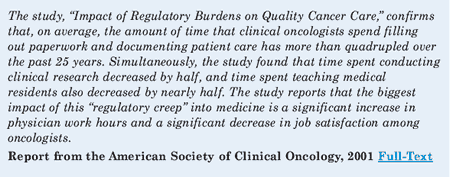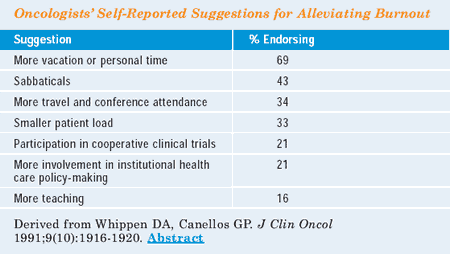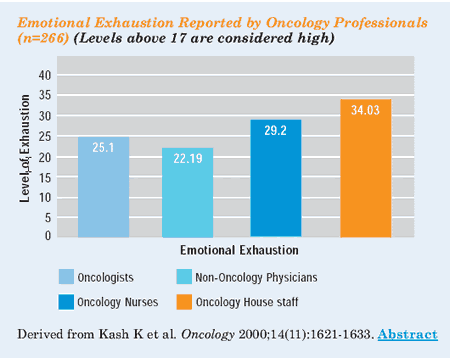|
You
are here: Home: BCU 4|2001: Section 8

Section 8
Psychosocial Issues in Breast
Cancer Management
PHYSYCYAN-PATIENT
COMMUNICATION
Communication
is a two-way street, and oncologists should not feel that the burden
is all on them. It’s also up to the patient to bring up issues
and ask questions. It needs to be done jointly. It’s easy for
an oncologist to take 30 seconds and ask the patient something like,
“How much information do you want? Do you want to know everything,
or you just want to know the basic essentials?” We actually
conducted a study looking specifically at that, 67 and we found
that this is very much age-related, with older patients much more
likely to say, “I don ’t want to know all this stuff.
This is what I’m paying my doctor for. Let my doctor take care
of it.” The younger patients were more likely to want to be
very actively involved. But there’s not always a perfect relationship
between communication style and age — so, it’s best to
ask.
Communication
has been made terribly difficult today with managed care and all
the paperwork that oncologists have to do, which is enormously stressful.
I think they’re in a very difficult position. These days oncologists
are supposed to be experts in palliative care, pain management,
financial management, alternative medicine, ethics and so on. It
is absolutely impossible for anyone to stay up on all of these things.
It’s hard enough to keep current in one’s own subspecialty
area of oncology.
—Barrie
Cassileth, PhD

THE
EMOTIONAL IMPACT OF BEING AN ONCOLOGIST
What I see is people working much too hard — being in the hospital
14 hours a day and then going home and doing more work It’s
really too much. Oncology is a much more difficult field than it
was ten years ago, and one of the biggest new stressors — and
this is documented by research — is the paperwork associated
with managed care. It’s terribly frustrating for someone with
a large number of patients to deal with useless, ridiculous, duplicative
paperwork.
To
cope with all this and the tragedy they see, oncologists must find
ways to separate themselves emotionally, or they become wiped out
— and many people are. It is a very tough life. Oncologists
can take mini-vacations just as we encourage patients to do, and
they can also benefit from learning strategies like meditation to
help them calm down and relax. They also greatly benefit from massage
and other techniques used for patients. We have classes for both
staff and patients, and for example, we have more staff than patients
signing up for our yoga classes.
—Barrie
Cassileth, PhD


I love oncology.
I have amazing patients and amazing people whom I work with. My
students often ask, “How you can do this? Isn’t this horribly
depressing?” And at times it is, but there are also incredibly
wonderful moments. Our patients are not and should not be willing
to share those wonderful moments with us if we’re not willing
to share the sad times with them. You can’t have it both ways,
and those good times are just too good to pass up. There is also
a wonderful gift in what I do. My patients make it impossible for
me to not remember what’s really important in our lives, which
is easy for us to do. We all know that we’re going to die sometime,
and that life is uncertain and there are no guarantees. However,
those things just seem so far off that they tend not to affect your
day-to-day life. But as an oncologist, I can’t do that —
I can’t take those things for granted, because my patients
won’t let me. It’s a constant reminder that we truly have
no guarantees and life is precious. And that ’s a wonderful
gift that my patients give me.
—Kathy
M i l l e r, MD
-
Review Select Publications
|
|
